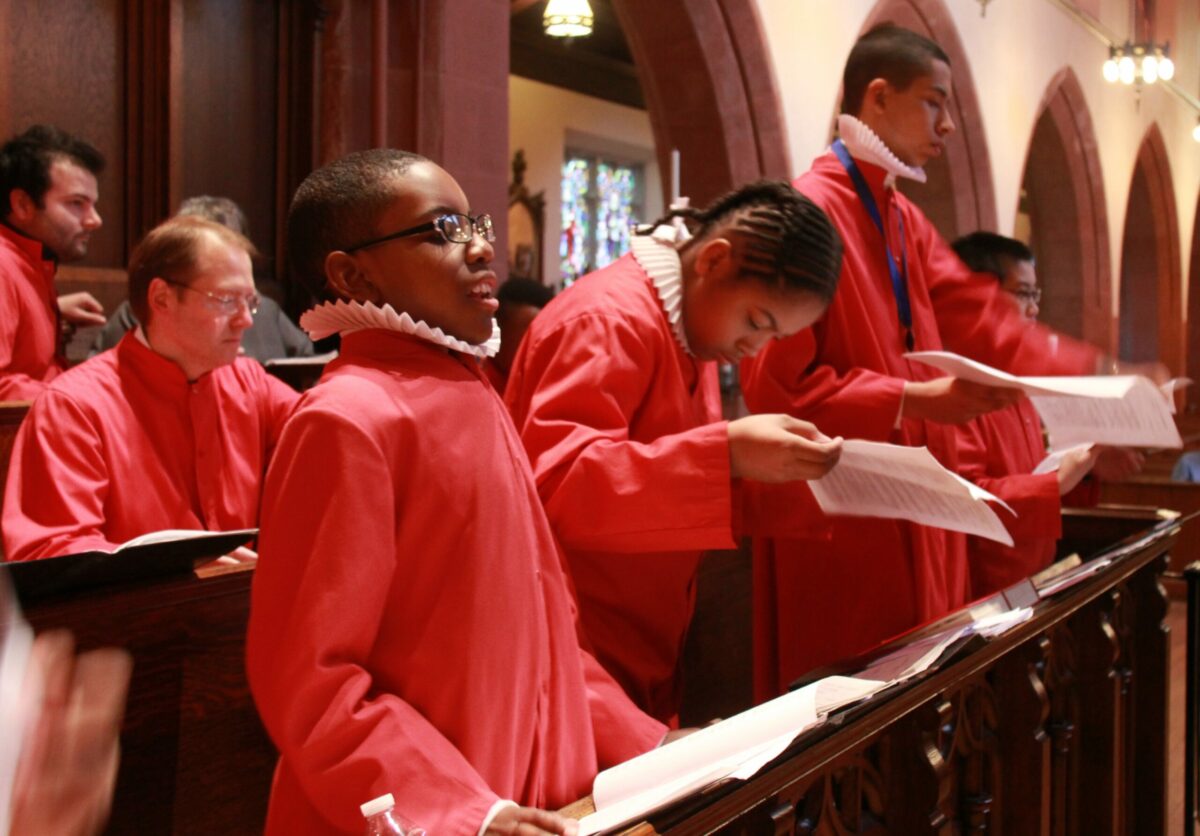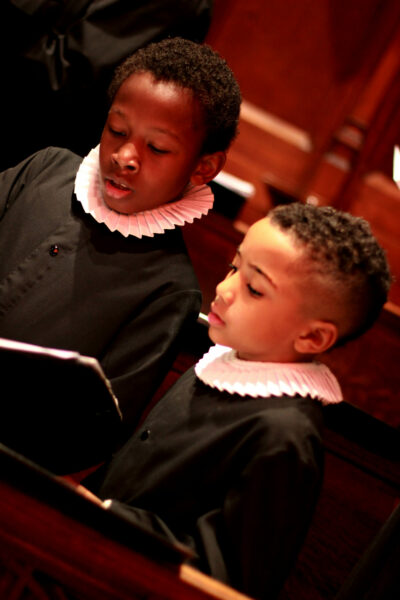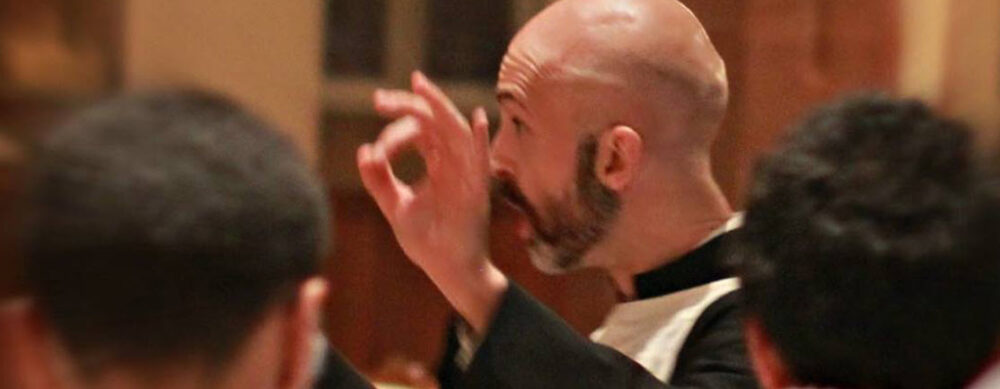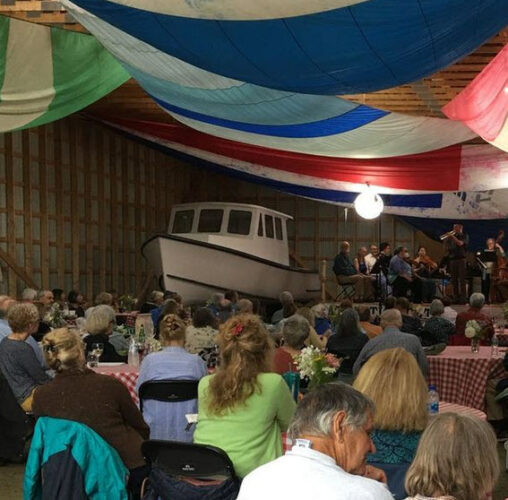by Ashley Mulcahy
Published September 26, 2022
In the Ashmont section of Dorchester, it’s all about Bach, Boy Choir, and after school Basketball

In a city with abundant opportunities to experience early music, the Bach Project contributes something unique to Boston’s vibrant scene.
A collaboration between Ashmont Hill Chamber Music and the music program at the Parish of All Saints, the Bach Project brings performances of Bach’s music to Boston’s Dorchester neighborhood. This Sunday, October 2, the Bach Project opens its 2022-2023 season with a concert featuring countertenor Reginald Mobley in the beloved solo cantata Vergnügte Ruh, beliebte Seelenlust (BWV 170) and violinist Susanna Ogata in the Concerto in A minor (BWV 1041).
“The Bach Project exists to provide low-cost, high-quality performances of the music of Bach to audiences in Dorchester, particularly in the Ashmont area,” says founding director Andrew Sheranian, who is also organist and master of choristers at the Parish of All Saints.
Dorchester is the most racially and ethnically diverse neighborhood in Boston. It is also the city’s largest neighborhood in geography and population (home to roughly a quarter of Boston residents). It is not, however, a typical destination for classical or early-music concerts.
The Bach Project’s first concert, in 2017, was sold-out, standing room only. That momentum carried forward: Before the pandemic, a typical Bach Project concert drew an audience of around two hundred.
“Doing it here, in this neighborhood, could have that effect, especially if you can find amazing performers of color who can bring that music to life for people of color,” Sheranian says. “The church is right off of Dorchester Avenue, a dividing line between white and Black communities, and the church is on the fault line, so that’s a perfect opportunity to bring people together.” (To prioritize that close-in audience, Ashmont Hill Chamber Music caps ticket prices at $25 and offers $3 tickets to EBT card holders.)
Boston Globe critic A.Z. Madonna attributes that success to the project’s hyper-local focus, describing it as “run and advised by people who have deep roots in the neighborhood. And the programming and audience reflect that.”
‘I was very nervous, but I sang it well’
While the Bach Project’s guest artists regularly perform with prestigious ensembles throughout Boston and around the world, in Dorchester they often share the stage with a group of locals: the All Saints’ Choir of Men and Boys, a.k.a. the Ashmont Boy Choir.
The Ashmont Hill series tries to facilitate mentorship opportunities between the choir and guests on the series when possible, following the success of a vocal workshop that bass-baritone Dashon Burton led in 2019.
Globe critic Madonna recalls interviewing Dashon Burton when he was leading those workshops. “Dashon told me that the Ashmont Hill program is exactly what needs to be happening in every community in the country,” Madonna says. “He told me they don’t want the guest musicians to just come in, do a concert, and get on a plane,” or skip Ashmont altogether “if there’s an opportunity for something bigger” in another city.

Composed of boys from roughly second through eighth grade, it’s the only boy choir in Boston proper. (Though membership has been as high as 18, the choir’s current forces have been depleted since COVID to just eight.) Most of the boys make up the soprano section, though several join the adult volunteers in the tenor or bass sections after their voices change.
Most boys are Dorchester residents who live close enough to walk to the church or take transit a stop or two. Some, such as seventh grader Michael McBean, who has been in the choir five years, are recruited from local schools. “I joined because the music teacher at my elementary school recommended the choir to me,” he explains.
Most join the choir without prior musical training. “They’re just local kids whose parents want them to have a safe place to be after school that’s free. It turns a lot of non-musicians into musicians,” Sheranian says.
New choristers have proven eager to acquire new skills. The challenges often make for memorable and rewarding experiences, like McBean’s: “A memory I have is singing my first solo because I was very nervous, but I sang it well, so I felt better after that.”
When it comes to getting new choristers up to speed, Sheranian also acknowledges the important social dynamics: “I think a huge part of it for a boy entering the choir is that it’s a group, and kids crave that belonging. They want to figure it out because they want to feel like they belong to this really cool group and like they’re part of a team.”

Founded in 1888, the boy choir has a long-standing local reputation for excellence. Also contributing to the choir’s “cool” factor is the opportunity to lead a congregation, to go on special trips—such as a free, week-long choir camp in the Adirondacks—and to earn a little money.
Their wages, which, as Sheranian explains, are in part designed to “thank the families for the huge time commitment,” also serve to teach the boys about adult responsibility and goals. They’re paid $1-$9 per call, depending on rank. A new kid makes $3 a week and a boy who’s achieved a high level makes $27 a week. “We pay them cash, and I give them a paystub so they see where their money came from.”
Wages, trips, and leadership aside, there’s no illusions as to the most important tool in the choir’s recruitment toolbox: the church’s basement basketball court. “We use the basketball court as a carrot. If they have a place that’s theirs, and they don’t have to compete with older boys to use the court, it’s like a clubhouse,” says Sheranian.
Although weekday rehearsals are just an hour and a half, many choristers spend countless hours at the Parish of All Saints after school. They come early to do their homework, have a snack, and of course to play basketball. Sheranian uses those extra hours to informally take a few boys at a time aside to work on musicianship skills. They follow a curriculum based on the Royal School of Church Music and progress throughout their years in choir. Each time a boy achieves a new set of skills, he gets a new ribbon and a pay raise.
And when it comes time for a concert, the boy choir and the guest musicians come together as colleagues.
In the 2022-2023 season, the boy choir will perform in the Bach Project’s St. John Passion on Sunday, March 5, 2023.
Ashley Mulcahy is a Boston-based mezzo-soprano and recent graduate of the Voxtet Program at the Yale School of Music and Institute of Sacred Music. In addition to singing with numerous ensembles, she co-directs her own voice and viol ensemble, Lyracle.




